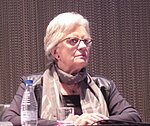
Agustín García Calvo was a Spanish philologist, philosopher, poet and playwright.

Fernando Fernández-Savater Martín is a Spanish philosopher, essayist and author.
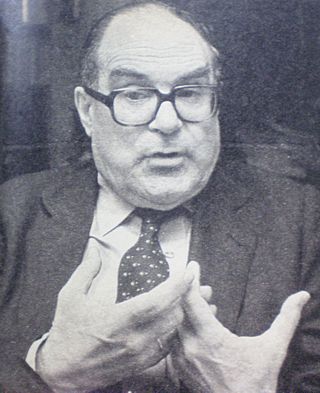
Julián Marías Aguilera was a Spanish philosopher associated with the Generation of '36 movement. He was a pupil of the Spanish philosopher José Ortega y Gasset and member of the Madrid School.
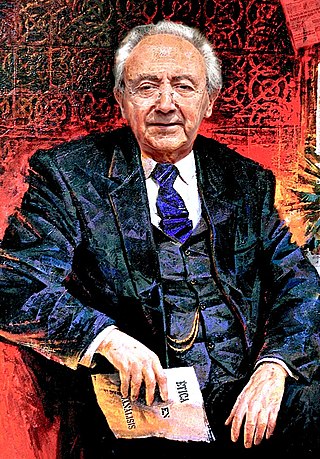
Manuel Isaías López was a prominent child psychiatrist, trained in Philadelphia. Many consider Manuel Isaías López to be the father of Mexican Child and Adolescent Psychiatry. In 1972, he founded the first Child and Adolescent Psychiatry subspecialty program in Mexico, at the National Autonomous University of Mexico (UNAM). He also founded and was the first president of AMPI in 1975. He was the training director of the only child and adolescent psychiatry training program in Mexico, at UNAM, from 1972 until 1998.

María del Pilar Cuesta Acosta, known professionally as Ana Belén, is a Spanish actress and singer. She and her husband are considered symbols of the Spanish Transition, and her songs and albums often feature boldly-titled works with social and political content.

José María Sacristán Turiégano, better known as José Sacristán, is a Spanish film, theatre, and television actor.

Juan David García Bacca was a Spanish-Venezuelan philosopher and university professor. He was born in Pamplona on June 26, 1901, and died on August 5, 1992, in Quito, Ecuador. Bacca began his education under the Claretians and was ordained as a priest in 1925. He continued his studies at the University of Munich, the University of Zurich, and the University of Paris. However, during the 1930s, he left the Church and pursued philosophy at the University of Barcelona. In 1936 after criticizing Francisco Franco, Bacca was forced to live in exile. He first traveled to Ecuador where he taught at the Central University of Ecuador (1939-1942). While in Ecuador he became close friends with a writer named Alfredo Pareja Diezcanseco. He then went to Mexico where he taught at UNAM from 1942 to 1946. He eventually established himself in Venezuela in 1946 and was granted citizenship in 1952. Bacca was a professor at the Central University of Venezuela until his retirement in 1971. He was recognized for his life's work and was awarded the National Prize for Literature in 1978.
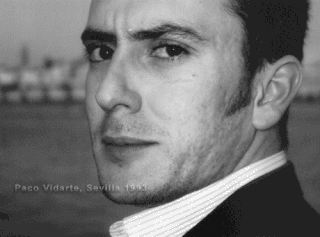
Francisco "Paco" Javier Vidarte Fernández was a Spanish philosopher, writer and LGBT activist.
Alfredo Federico López Austin was a Mexican historian who wrote extensively on the Aztec worldview and on Mesoamerican religion. As an academic teacher, he inspired generations of students, but his influence extends beyond the boundaries of academic life. His sons are Alfredo Xallápil López Luján, well known biologist and informatic and the renowned archaeologist, Leonardo Náuhmitl López Luján.
Miquel Porta is a Catalan physician, epidemiologist and scholar. He has promoted the integration of biological, clinical and environmental knowledge and methods in health research and teaching, which he has conducted internationally; notably, in Spain, at the University of North Carolina at Chapel Hill, Harvard, Imperial College London, and several other universities in Europe, North America, Kuwait, and Brazil. Appointed by the International Epidemiological Association (IEA), in 2008 he succeeded the Canadian epidemiologist John M. Last as Editor of "A Dictionary of Epidemiology". In the Preface to this book he argues for an inclusive and integrative practice of the science of epidemiology. In September 2023, Porta made public through several social networks a call to suggest changes to the new, 7th. edition of the dictionary. The deadline for such contributions is 30 November 2023.
The National Literature Prize for Narrative is a prize awarded by Spain's Ministry of Culture for a novel written by a Spanish author in any of the languages of Spain. The prize is 20,000 euros.

Eloy Anselmo Luis y André was a Spanish psychologist, philosopher, educator and Galician writer.

José Luis Sampedro Sáez was a Spanish economist and writer who advocated an economy "more humane, more caring, able to help develop the dignity of peoples". Academician of the Real Academia Española since 1990, he was the recipient of the Order of Arts and Letters of Spain, the Menéndez Pelayo International Prize (2010) and the Spanish Literature National Prize (2011). He became an inspiration for the anti-austerity movement in Spain.
Dora Elvira García González is a Mexican professor and researcher with the Monterrey Institute of Technology and Higher Studies as well as director of the humanities school of the Mexico City Campus. Her research work has been recognized by Level II membership in the Mexico’s Sistema Nacional de Investigadores.
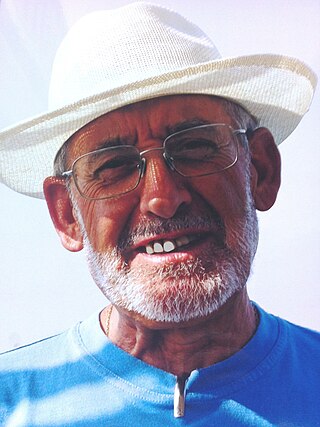
Manuel Sánchez Cuesta is philosopher, ethicist and humanist.
Gladys Ethel Parentelli Manzino is a Uruguayan feminist theologian and photographer who has lived in Venezuela since 1969. A representative of Latin American ecofeminism, she was one of three Latin American women appointed by Pope Paul VI as observers at the Second Vatican Council.
Sultana Wahnón Bensusan is a Spanish essayist and literary critic, a professor at the University of Granada specializing in literary theory and comparative literature.

Julio Cabrera is an Argentine philosopher living in Brazil. He is a retired professor of the Department of Philosophy at the University of Brasília and former head of the department. Previously he taught in Argentina, at the National University of Córdoba, the University of Belgrano and then in Brazil at the Federal University of Santa Maria. He is best known for his works on "negative ethics" and cinema and philosophy. Other areas of philosophy that he deals with are philosophy of language, logic and Latin American philosophy.

María José Guerra Palmero is a Spanish philosopher, writer, and feminist theorist. She holds a Ph.D. in Philosophy and is a professor in the area of moral philosophy at the Faculty of Humanities of the University of La Laguna (ULL) in the Canary Islands. Since 2017, she has been president of the Red española de Filosofía. From July 2019 until May 25, 2020, she served as Minister of Education, Universities, Culture and Sports of the Gobierno de Canarias under Ángel Víctor Torres.

Begoña Román Maestre is a Spanish philosopher, university professor, and researcher.
